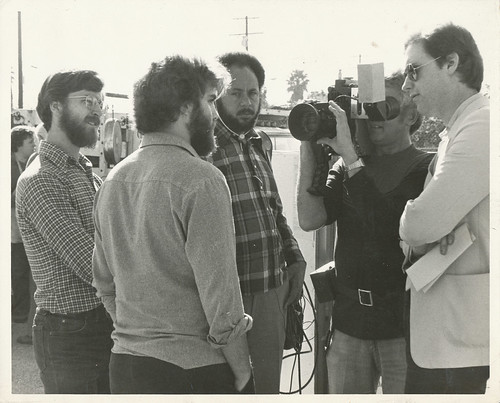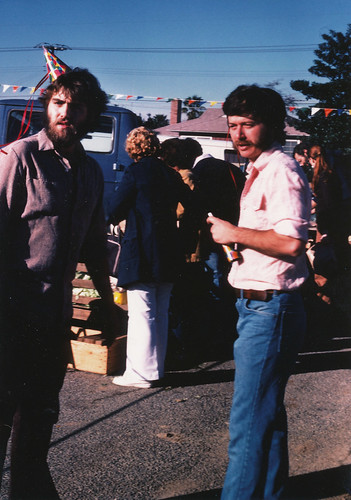Please visit Collective Roots and learn how our work is changing lives. Your support can make health and learning happen for those who need it the most.



Two incredible human beings: Robert Garcia and Saree Mading posing in front of the Giant Green Dome (Greendom) in the Collective Roots Garden at East Palo Alto Charter School. Why are they there? The garden has become a destination point for many who connect at the intersection of food, health, environment, education, community, and fun!
LaDonna Redmond is president and CEO of the Institute for Community Resource Development (ICRD), Chicago, Ill. The Institute’s mission is to rebuild the local food system. ICRD projects include: building grocery stores that bring access to sustainable products to urban communities of color, organizing farmers markets, converting vacant lots to urban farm sites and distributing local grown produce to restaurants.
A community activist and mother of a child with severe food allergies, Redmond began researching the food system in order to feed her son. Through her work, she discovered that people in urban communities want, but have limited access to, healthy food. This discovery led Redmond to get Chicago Public Schools to evaluate access to junk food in schools and create a task force to examine the potential of other pilot changes, such as connecting farmers to schools. Her discoveries also have led the Mayor of Chicago to consider urban agriculture as a good use of urban space.
"I love the idea of social enterprise. This tie was made to support midwifery work in Guatemala via my work with Xela Aid (http://www.xelaaid.org/).




Posing with the Mayor of Los Angeles was fun. I'm thankful the Mayor sees political currency and provides mindful support to the Farmers' Market movement. Every Mayor in the United States should be standing in front of City Hall and proclaiming that farmers' markets are essential to communities and to our health. Thank you Mayor Antonio Villaraigosa.
Thirty years ago I never imagined that someday I would be standing in front of City Hall with the Mayor of Los Angeles celebrating the incredible 30 year history of farmers' markets in Los Angeles. Yet there I was, thirty years after my career was started when I was the first staff hired by the Interfaith Hunger Coalition to start the first farmers' markets in low income areas throughout the Los Angeles Area.
It was heartwarming and amazing to think that 30 years have gone by since organizing the very first certified farmers' market in Gardena, California. I was carrying thoughts of the remarkable visionaries like Gene Boutilier and Mike Fonte who were among the leadership of the Interfaith Hunger Coalition that first brought the dream and vision of farmers' markets to Los Angeles. Mike Fonte shared the story with me that "Gene took a gaggle of us cross-country in an old van to
Indianapolis for a meeting of folks involved in food/hunger issues.
Someone spoke about farmers' markets and the great combination of helping farmers and poor consumers at the same time....we took it back and made it happen through the IHC and with the good help of the State's direct marketing folks." Mike hired me as the first full-time organizer to lead what became the Hunger Organizing Team. My job as "Food Self-Reliance Coordinator" involved several years of work organizing the first farmers' markets in L.A.
My very first news release announcing the grand opening of the Gardena Farmers' Market.

And there I am with Vance Corum who has become a legend in the field of farmers' markets. The media coverage of the first markets in the Los Angeles area was incredible.

I served as the first interim market manager for the Gardena Farmers' Market. Mark Wall became the permanent manager of this first of what became many Certified Farmers' Markets in the L.A. area.
Clowning around at the Gardena Farmers' Market during our early days (1979).
This article featured the grand opening of the Gardena Farmers' Market, the first Certified Farmers' Market in the Los Angeles area. That is me in the back of a farmers' truck helping with sales that were brisk right from the the very first day. What an exciting time. Three decades later, I still am supporting the development of farmers' markets in low income communities. Visit http://www.epafarmersmarket.org to view the most recent effort I have been associated with.
Thirty plus years ago my career started in the food system change movement while working for the Interfaith Hunger Coalition. Tomorrow I will celebrate what has now grown into a farmers' market empire in L.A. "Farmers' Markets: 30 Years and Growing" will be hosted by the City of L.A. with partners on September 3rd, 2009.





My dear departed mother, God rest her gardening soul, was a nature lover and an avid gardener who couldn’t wait to get seeds in the ground as soon as it thawed. She would refer to the garden in her poetry as one of her “places of refuge.” Unfortunately, she was a single working parent of three children, and her passion for gardening was not matched by the availability of the countless “leisure time” hours the avocation requires to sustain garden productivity and to cultivate the sense of gardening as a “healing experience.” This fact is painfully imbedded in the memories I have, when at the behest of my mother’s plea for help, my siblings and I would gloomily march out to the garden to assist my mother in pulling out the overgrown weeds that often frequented and quickly overcame my mother’s gardens. For us, the garden was not a place of refuge, but a mini-garden-gulag, where we suffered as under-aged slave laborers. Only my mother’s profound and infectious love of nature transcended the painfulness of this experience.
Generally not one to allow my experience of misfortune to dictate my future success, I took the entrepreneurial approach, putting my hard earned horticultural skills to work, and began earning an income at a very young age, employed in the exciting and “profitable” field of horticulture. Horticulture, like any other disciplines in the arts and sciences, requires the serious devotee to “pay one’s dues.” Suffice it to say that I paid mine, engaged in countless hours of mowing lawns and performing back-breaking yard work for hire. Later in life, while in my early teens, my family moved “out west,” eventually finding a home in the Hollywood Hills of
Years passed and I was attending college while still living in the midst of urban
I began my work with HOT by researching existing innovative strategies for combating inner city hunger and malnutrition. I had the opportunity to travel around the
The first phase of my work involved creating a “food self-sufficiency” team that was responsible for developing Certified Farmers Markets in low-income communities throughout the
I expanded the HOT program to include the development of an Urban Agriculture project that included directing land access, developing and managing four urban agriculture demonstration sites ranging from 1/6 to 11 acres (totaling 21 acres of land) in cultivation at locations in low-income neighborhoods throughout the Los Angeles region. I acquired technical assistance, zoning variances, permits, and licenses, contracts, etc., building cooperative relationships with city, and county, and state officials. One site was under the power lines, another on a section of the yet un-built 105 Freeway, and another on a vacant lot.
I developed resources, solicited donations, and participated in an economic viability research team. I organized the first major urban agriculture conference in
During the last 30 years, I have accumulated many similar experiences that have called upon me to dig into both my horticulture and leadership skill sets. It has been a rich career, but I do not want this to be a review of my life work experiences, as fascinating as they might be. Please allow me to shift the focus to how the experience has affected my philosophy of leadership. Along the way, I met some remarkable gardeners and leaders; mentors in other words. In addition to my mother, I had the good fortune to get to become acquainted with a few other great souls who inspired greatness in me through the garden, including:
Horticultural leaders sometimes emerge in the mass culture, and one of my favorite “horticultural” films is “Being There,” from the novel by Jerzy Kosinski. Peter Sellers stars in the movie, masterfully and hysterically portraying a humble gardener, perhaps developmentally out of step (or is it the world’s development that is out of step?), who through a series of hilarious circumstances becomes an advisor to the power elite of the planet. At one point in the film, the President of the
“I found Mr. Gardiner to have a feeling for this country that we need more of. He likened us to a garden. To quote Mr. Gardiner, a most intuitive man, ‘As long as the roots of industry remain firmly planted in the national soil, the economic prospects are un-doubtedly sunny. Gentlemen, let us not fear the inevitable chill and storms of autumn and winter, instead, let us anticipate the rapid growth of springtime, let us await the rewards of summer. As in a garden of the earth, let us learn to accept and appreciate the times when the trees are bare as well as the times when we pick the fruit.’”
I reference this passage with the hope that my philosophy toward life and leadership is not received without good humor and understanding, classifying me as some sort of mixed-up fringe horticultural / organization development character who takes gardening far too seriously. Deep down in my heart and soul, I believe that one of the human race’s most useful functions is to be good gardeners upon the planet earth. Horticulture is a framework of stewardship that, in its best light, is a practice of cultivating places of treasure, creating places of rescue, and fostering regeneration. I truly believe organizations can be also become places of cultivated treasure and transformation.